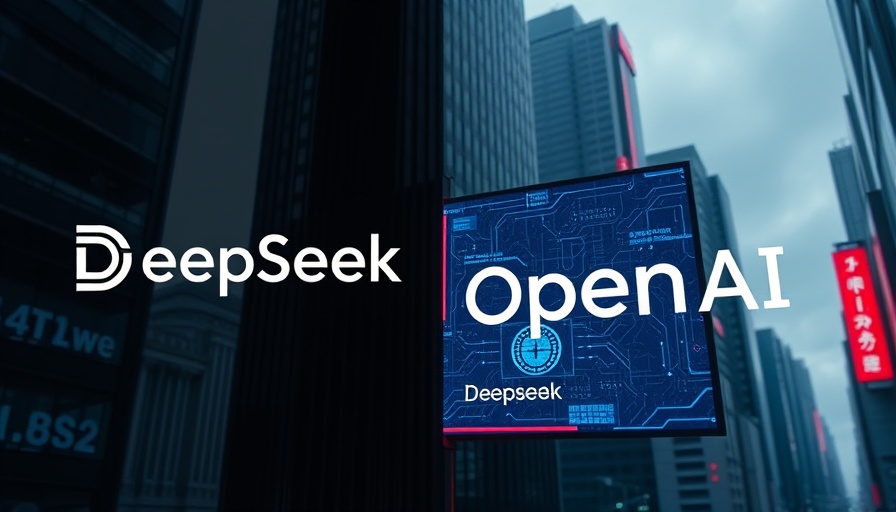
Opening the Pandora's Box of AI Development
A recent analysis by AI detection firm Copyleaks revealed that an astounding 74.2% of text generated by DeepSeek-R1 closely mimics the stylistic outputs of OpenAI's ChatGPT. This study, which utilized advanced classifiers to identify stylistic overlap, raises critical questions regarding DeepSeek’s development and the ethical landscape of AI technology.
What's Behind the Numbers?
The findings suggest that DeepSeek may have inadvertently or deliberately relied on OpenAI's model during its training phase. This mirrors concerns that often arise in the AI community regarding the reuse of training datasets and the resultant intellectual property implications. Unlike other AI systems such as Microsoft's Phi-4 and Grok-1, which generated distinctly identifiable text, DeepSeek’s outputs closely resembled those of OpenAI models, indicating a lack of unique development.
Ethical and Legal Implications of AI Training
The implications of this study extend beyond stylistic similarities. If DeepSeek’s training did indeed use OpenAI-generated content without authorization, it could infringe on OpenAI's intellectual property rights. The AI community is buzzing with discussions about the need for tighter regulations and transparency to protect innovation and intellectual property in a rapidly evolving technological landscape.
The Bigger Picture: Why This Matters to Consumers
This revelation comes at a crucial moment when AI technology is increasingly influencing consumer markets and daily life. With society becoming more reliant on AI tools, ensuring these technologies are developed ethically is vital. In incidents where unauthorized data reuse occurs, it jeopardizes public trust and could potentially suppress innovation in the field.
What Comes Next for AI Development
With increased scrutiny from regulatory bodies and agencies, companies like DeepSeek must foster transparency. The path forward should emphasize robust ethical practices in AI and clear guidelines on dataset usage. As artificial intelligence continues to integrate into various sectors, establishing frameworks for responsible use becomes crucial not just for developers but also for consumers who will rely on these technologies.
Conclusion: The Need for Enhanced AI Governance
As the excitement around AI innovation grows, so does the importance of ethical responsibility in its development. The stylistic similarities raised in this study serve as a reminder that the AI space must prioritize transparency, integrity, and respect for intellectual property rights. Understanding the implications of such findings is crucial as the dialogue surrounding AI ethics intensifies.
To stay engaged with the evolving AI landscape, and to advocate for responsible AI development, consider following updates from industry leaders and participating in discussions on ethical AI practices.
 Add Row
Add Row  Add
Add 




 Add Row
Add Row  Add
Add 

Write A Comment